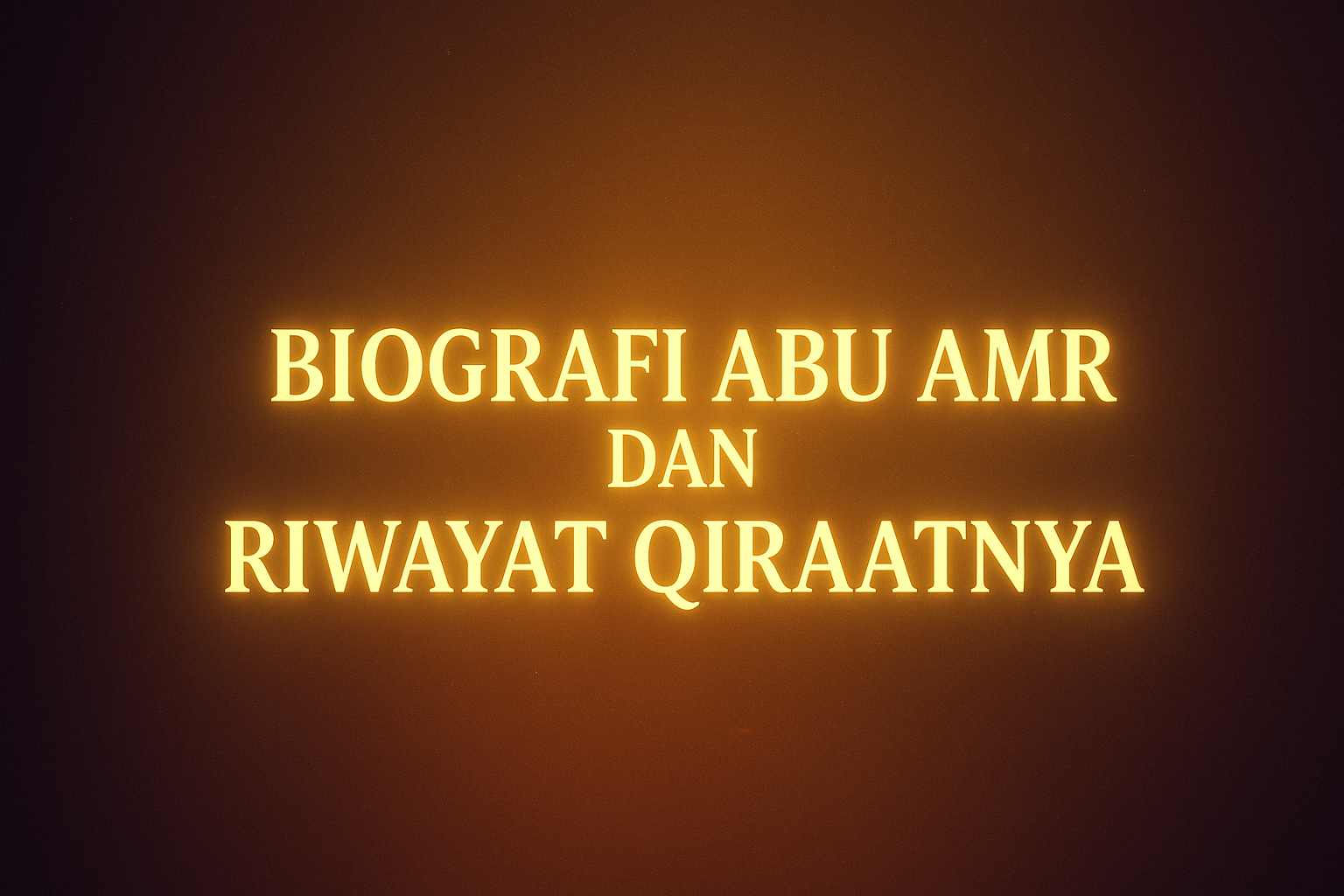BIOGRAFI ABU AMR DAN RIWAYAT QIRAATNYA
Keywords:
Abu ‘Amr ibn al-‘Ala’, Canonical Qiraat, Scholar’s Biography, Qur’anic Transmission, Ulum al-Qur’anAbstract
This research aims to explore in depth the life and legacy of Abu ‘Amr ibn al-‘Ala’ al-Basri al-Tamimi, one of the seven canonical qiraat imams who played a major role in the history of Qur’anic recitation and Arabic linguistics. Abu ‘Amr was not only renowned for his melodious voice and unique recitation style but also for being one of the earliest scholars to establish the foundations of Arabic grammar (nahwu) in the city of Basra. He lived during the era of the tabi’in and was directly taught by many prominent companions and successors of the Prophet. His recitation was transmitted through two major narrators, ad-Duri and as-Susi, whose credibility in preserving Qur’anic tradition has been acknowledged across generations. This study employs a qualitative descriptive method with a literature-based approach by examining classical texts and modern academic sources to reconstruct the biography, scholarly background, and specific features of Abu ‘Amr’s qiraat. The findings reveal that Abu ‘Amr’s recitation is characterized by the application of tark al-hamz (omission of glottal stops) and idgham kabir (assimilation of similar consonants), making his reading style smoother and more accessible to a wider audience. Furthermore, his contributions to Arabic linguistics establish him as a multidisciplinary figure whose influence extended far beyond the field of qiraat. The study also shows that Abu ‘Amr’s significance lies not only in philological terms but also in the educational framework of Islamic classical pedagogy, especially in the transmission of Qur’anic knowledge through talaqqi and musyafahah. Therefore, revisiting his biography and intellectual legacy is crucial in revitalizing interest in classical scholars within the broader discourse of ‘Ulum al-Qur’an. By examining Abu ‘Amr’s role and impact comprehensively, this study seeks to broaden the academic perspective on the evolution of qiraat and knowledge transmission in the Islamic scholarly tradition.
References
Al-Makki, I. (2018). Ilmu Qiraat dan Ragam Bacaan Al-Qur’an. Jakarta: Darul Ulum Nusantara.
Az-Zarqani, M. A. (2001). Manahil al-‘Irfan fi Ulum al-Qur’an (Jilid 1–2). Kairo: Dar al-Fikr.
Fauzan. (2022). Sejarah dan Perkembangan Qiraat Sab‘ah. Jakarta: Pustaka Ilmu Qurani.
Hanafi, M. (2020). Kajian Metodologi Ulum al-Qur’an: Tafsir, Qiraat dan Asbabun Nuzul. Bandung: Al-Fajr Institute.
Hasan, Z. (2019). Tokoh-tokoh Penting dalam Ulumul Qur’an. Yogyakarta: Mizan Pustaka.
Husaini, A. (2020). Qiraat Mutawatir dan Relevansinya dalam Studi Ulumul Qur’an. Yogyakarta: Mutiara Ilmu.
Ibn Mujahid, A. B. D. (1998). Kitab al-Sab‘ah fi al-Qira’at. Beirut: Dar al-Kutub al-‘Ilmiyyah.
Ilyas, M. (2021). Pendekatan Linguistik terhadap Qiraat Sab‘ah. Malang: UIN Maliki Press.
Nasution, M. (2021). Pengantar Studi Ilmu Qiraat. Bandung: Al-Furqan Press.
Nugroho, A. (2019). Biografi Imam Qiraat: Warisan Sanad dan Bacaan Al-Qur’an. Surabaya: Al-Kautsar Institute.
Rohimah, L. (2019). Perkembangan Qiraat dan Peran Imam Tujuh dalam Ulumul Qur’an. Surabaya: Lajnah Ilmiah Quraniyah.
Sulaiman, A. R. (2021). Abu ‘Amr dan Fondasi Ilmu Nahwu Bashrah. Jakarta: Markaz al-Lughah.
Yazid, M. (2020). Imam Qiraat dan Warisan Bacaan Al-Qur’an. Semarang: Madani Press.

Downloads
Published
How to Cite
Issue
Section
License
Copyright (c) 2025 Jurnal Islam Pesisir dan Kajian Keislaman

This work is licensed under a Creative Commons Attribution-NonCommercial 4.0 International License.





